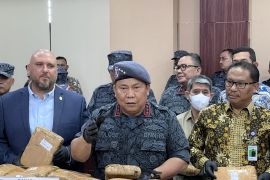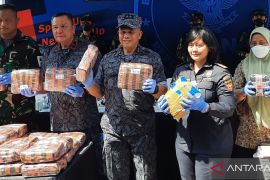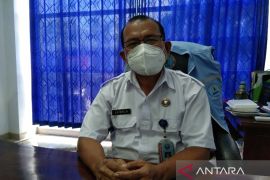Right now there are at least four million narcotic addicts in Indonesia."Semarang, Central Java (ANTARA News) - Marijuana distribution in Central Java province reaches 60 tons a year, according to head of data and information research center of the National Narcotics Agency (BNN), Brigadier General Darwin Butat Butar.
"Methamphetamine distribution meanwhile reaches 600 kilograms a year and ecstasy 20 million pills a year in addition to other narcotic drugs," he said here on Wednesday telling about the seriousness of the problem.
On the sidelines of popularizing the results of BNN researches in 2012 he said however that the number of narcotic abuses in the Central Java province was still relatively low compared to Jakarta, North Sumatra, Banten (West Java), East Kalimantan and East Java.
"Based on BNN`s research the rate of narcotic abuses in the five provinces has indeed been the highest. The rate in Central Java is in the middle. However we must not be off-guard," he said.
He said BNN conducted the researches along with state Indonesia University and local state universities such as Diponegoro University in Semarang in 2012.
In general Darwin said the results of researches showed victims could come from all walks of life and economic levels although mostly affecting entertainment and mining workers.
"Right now there are at least four million narcotic addicts in Indonesia. The trend is up and so concern is needed from all parties to overcome it," he said.
He admitted that Indonesia has become the target of narcotic distribution from abroad because the price in the country is higher than in other countries.
"Compared to Malaysia, Singapore and other European countries the price of narcotic drugs in Indonesia is higher and could double and therefore the country has become the desired target," he said.
BNN Central Java chief Senior Commissioner Soetarmono meanwhile had appealed to addicts to report to the authorities for rehabilitation.
"They will not be legally processed but will be treated in rehabilitation centers. But if they would not report they could be legally processed even including their family members," he said.
(Reporting by Zuhdiar Laeis/H-YH/A014)
Editor: Priyambodo RH
Copyright © ANTARA 2013












